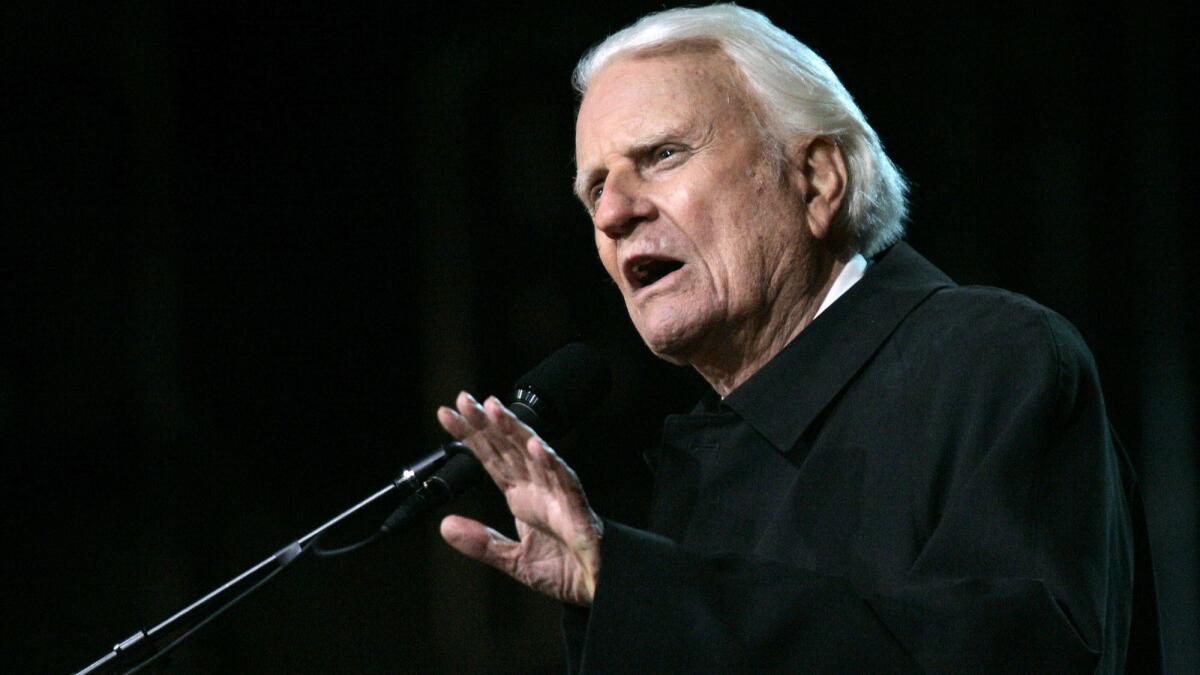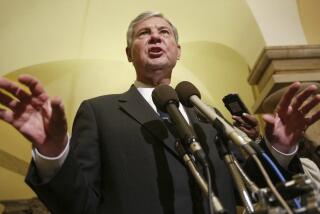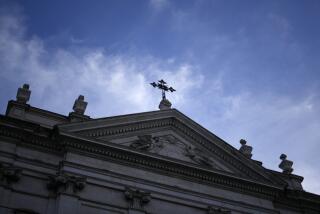Readers React: Billy Graham’s evangelical heirs are sullying the reverend’s complicated legacy

To the editor: In 2004, I went to the Rose Bowl to hear Billy Graham, who died Feb. 21. I went out of curiosity and because I suspected it would be his last appearance in California. It was.
Because of traffic I was late and the event was already underway. From a distance I could hear Cliff Barrows, Graham’s right-hand man, welcoming the crowd. As I entered the Rose Bowl, the sound of 90,000 people singing “How Great Thou Art,” the Billy Graham anthem, sent a chill up my spine.
I looked around and thought of how some people can move the masses. When it is done for evil (think of Hitler in the German stadiums), it can cause worldwide chaos and misery. When it is done for good it can make the world a better place.
Graham was no saint. His stance toward gay people was miserable and unchanging. He would not have approved of my marriage to my husband. Yet despite his lousy stance on LGBT rights, in general, he tried to make the world a better place.
Sadly, his evangelic movement was hijacked in the 1980s by self-serving ideologues like Jerry Falwell and the Moral Majority, who moved evangelism into politics and the culture wars. Graham himself publicly stated his regret for having been drawn into politics. Even more tragic, Graham’s legacy is his son Franklin, who has moved his father’s organization to the extreme far right.
Evangelicals would be wise to look back to Graham’s early days when his goal was simpler: to get people to live better and more loving lives.
Doug Jones, Los Angeles
..
To the editor: The German philosopher Walter Benjamin wrote the following:
“The power of a country road when one is walking along it is different from the power it has when one is flying over it by airplane…. The airplane passenger sees only how the road pushes through the landscape, how it unfolds according to the same laws as the terrain surrounding it. Only he who walks the road on foot learns the power it commands, and of how, from the very scenery that for the flier is only the unfurled plain, it calls forth distances, belvederes, clearings, prospects at each of its turns like a commander deploying soldiers at a front.”
For the religiously faithful, the fly-over is sufficient. For the Rev. Graham, only the walk would do.
John Leverence, Studio City
Follow the Opinion section on Twitter @latimesopinion and Facebook
More to Read
A cure for the common opinion
Get thought-provoking perspectives with our weekly newsletter.
You may occasionally receive promotional content from the Los Angeles Times.






